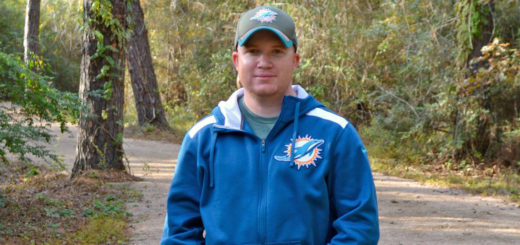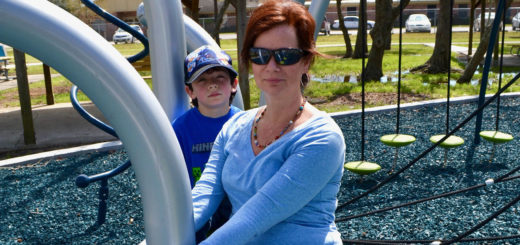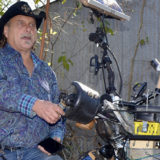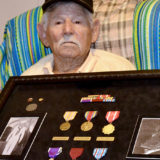‘Dementia is definitely a cruel thing’
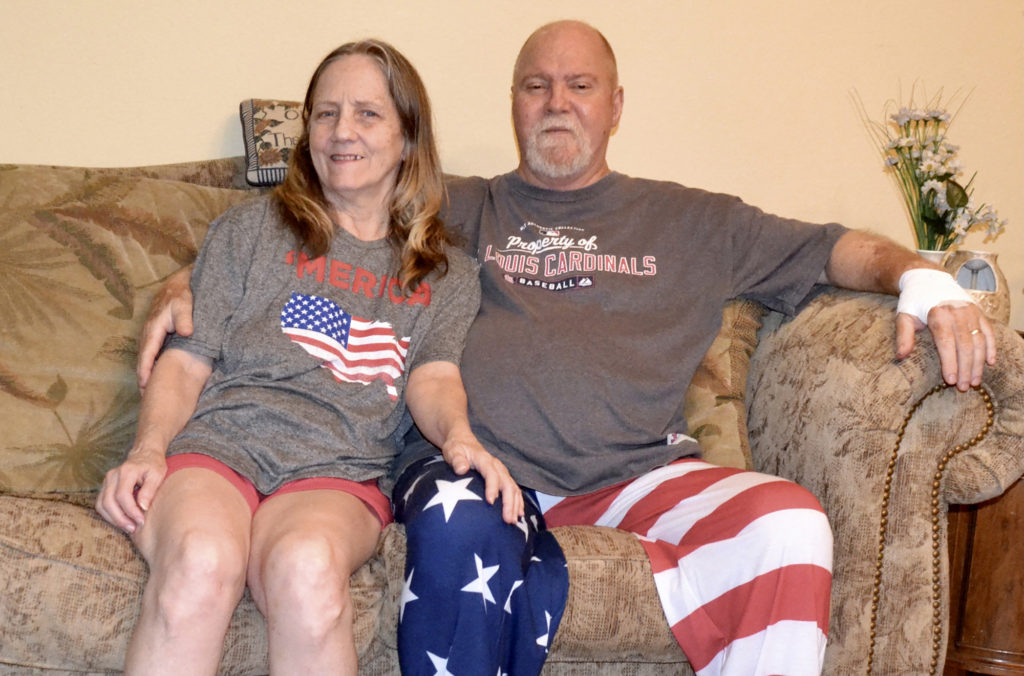
“I’ve always had this dry sense of humor that she understood and appreciated. When we’d go to a restaurant and the waitress would come up, I’d say, ‘Can you please tell the other waitresses that I’m sorry, but I’m already married.’ And Denise would laugh. We used to laugh a lot.
“But things started to change about four years ago. She was always pretty sharp. Then I began noticing that in regular conversations, she was forgetting things more and more. One time she was crying, and I asked, ‘Honey, what’s the matter?’ She said, ‘I can’t remember my mom’s first name.’
“As things continued, we went to a doctor, who suggested we see a neurologist. That’s when she was diagnosed with early stage dementia. It’s progressed terribly worse from there.
“Her gait has really slowed. Going down stairs or the little ramp outside Walmart is a lot more challenging. She cries two or three times a day. Her delusions make her cry. It’s particularly difficult when it happens in the middle of the night, when she’s crying and angry. It’s really hard to understand how to calm someone out of that.
“Dementia is defintely a cruel thing. But every day, I try to get her moving a little. We try to walk. She loves music. So I’ll put on disco, rock or country, and get her to do exercises to it. It’s only temporary, but it’s something.
“As hard as it’s been for her, I definitely will get frustrated. It takes a lot out of you as a caregiver. It’s a very tough disease to navigate by yourself. So I’ve been in support groups that come on the computer. The other people may not be going through your exact situation. Their personalities may be different. Their strengths are different. But at least it makes you feel like you’re not alone in this.”
— Tim Reed
Related:

